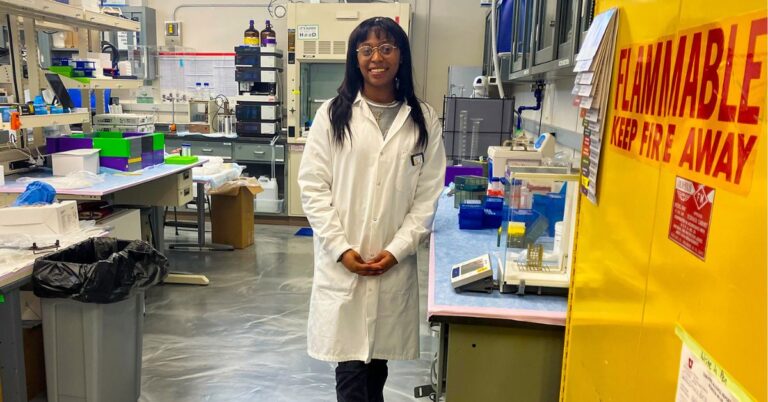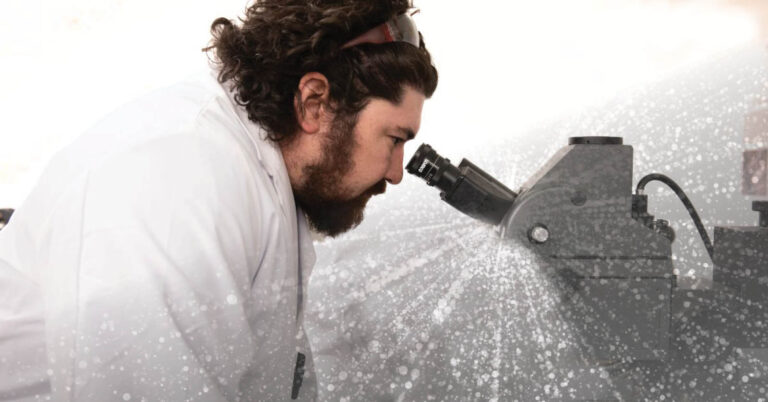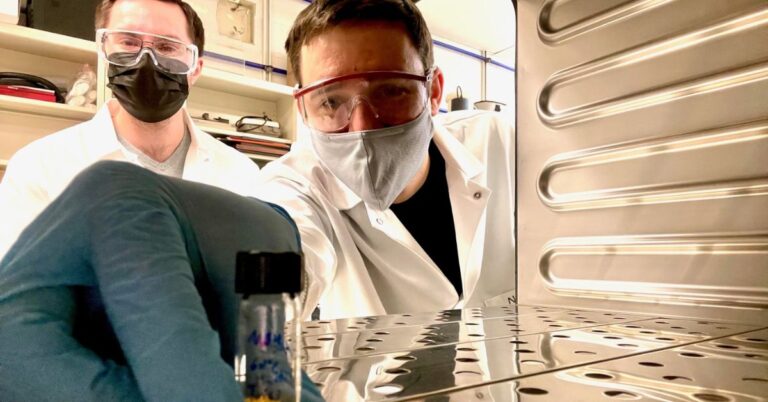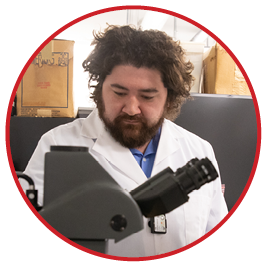Nuclear Engineering
Pioneering Research in Nuclear Science and Engineering
With a commitment to innovation and excellence, the Utah Nuclear Engineering Program (UNEP) aims to push the boundaries of multidisciplinary nuclear-related fields. UNEP’s overarching goal is to continually make strides in the advancement of multidisciplinary nuclear-related fields such as actinide synthesis, electronics nesting, energy, and more.
Our faculty understand the importance that nuclear engineering research holds for the promise of significantly shaping our society and charting the course for a sustainable and dynamic future.

+ Construction Engineering
+ Environmental Engineering
+ Geotechnical Engineering
+ Materials Engineering
+ Nuclear Engineering
+ Structural Engineering
+ Transportation Engineering
+ Water Resources
Research Areas
Nuclear Forensics
Medical Isotope Production
Nuclear Safeguards
Radiation Detection
State-of-the-Art Labs
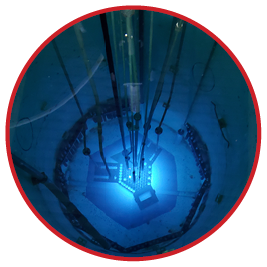
About Our Nuclear Reactor
The University of Utah is one of the few institutions in the nation that houses its own nuclear reactor, right here on campus. We've been conducting research and training on the TRIGA reactor since 1975. TRIGA stands for Training, Research, Isotopes General Atomics. There are currently only 40 TRIGA reactors operating in the world, with just 18 in the United States.
Having our own nuclear reactor enables us to conduct research for nuclear medicine, nuclear forensics, radiation detection, and more.
Nuclear News
Using Targeted Alpha Therapy to Fight Alzheimer’s Disease
Cametrius Warren's research project, “Targeted Alpha Therapy for the Treatment of Alzheimer's Disease,” recently earned her a prestigious grant from the Society of Nuclear Medicine & Molecular Imaging (SNMMI). SNMMI’s student research grants are designed to build the future workforce in nuclear medicine, a field rapidly expanding with new diagnostics, radiopharmaceutical therapies, and innovative imaging technologies.
Nuclear Detective: U of U Professor’s Research is Enhancing National Security
Supported by a $400,000 grant from the National Nuclear Security Administration, Dr. Ed Cazalas’s project will leverage the unique properties of 2-D materials and quantum dots to enhance radiation detection. The research will investigate how 2-D materials and quantum dots respond to nuclear radiation by exposing them to controlled irradiation and analyzing the resulting signals.
+$1.3 Million Research Award to Dr. McDonald by U.S. Department of Homeland Security
Dr. Luther McDonald‘s research has received the 2023 Countering Weapons of Mass Destruction: Nuclear Forensics Research Award (NFRA), with a budget of $1,395,000 to support 36-months of laboratory experiments and student development.
Innovative Alzheimer’s Treatment Developed at the U Featured in Journal of Nuclear Medicine
Dr. Aidan Bender, a UNEP PhD graduate, spearheaded pioneering research on Alzheimer’s disease. His remarkable work is being published in the Journal of Nuclear Medicine, the premier journal in the field.
The research received funding from the University of Utah’s 1U4U initiative, which aims to bring together research and projects from health sciences and the U’s main campus to increase their societal impact. 1U4U’s support of this project underscores the value of Dr. Bender’s contributions.
Cazalas Group of Radiation Detection, Effects, and Dosimetry, (CAZ-RAD)
At the helm of the CAZ-RAD, Dr. Cazalas is dedicated advancing our understanding of nuclear and radiation interactions.
The group benefits from the extensive facility support available at the University of Utah, including the UU Nanofab Labs and the UU TRIGA Reactor (UUTR). These facilities enhance the group’s ability to conduct high-impact research. Looking ahead, the group is planning to develop a neutron source irradiation facility, further expanding their research capabilities and the potential for groundbreaking discoveries.
Dr. Cazalas's research group (CAZ-RAD) works to understand the physics and engineering of nuclear and radiation interactions, tools, and instruments for radiation detector development, advancement of the field of dosimetry, and investigation of radiation effects. This work goes into application by supporting the fields of nuclear engineering, radiation and nuclear physics, nuclear security, and radiation damage and hardness effects in electronics.
Dr. Tara Mastren is a nuclear assistant professor in the CVEEN department. Her teaching and research interests are in nuclear medicine, which targets radiotherapy for the treatment of cancer and Alzheimer’s, lanthanide and actinide chemistry, and isotope production. Dr. Mastren tells all of our CVEEN students, “if you want to go into research science, get as much lab experience as possible.”
Dr. Phongikaroon's research has transformed nuclear fuel separation and safeguards. Breakthroughs in pyroprocessing, advanced separations, and laser spectroscopy have established VCU as a leader in molten salt radiochemistry and laser spectroscopy. Dr. Phongikaroon's work has garnered over $6 million in funding, resulting in 50+ peer-reviewed publications and 100+ presentations. His dedication to education has shaped 25+ courses, connecting fundamental concepts to real-world applications.
Dr. Wang’s research focuses on advancing particle transport simulation methods, multi-physics coupling, and reactor digital-twin development. He is particularly interested in leveraging high-performance computing and advanced numerical techniques to improve predictive modeling of complex nuclear systems. His broader research interests also include general scientific computing and the development of innovative tools that support nuclear energy applications and safety.

